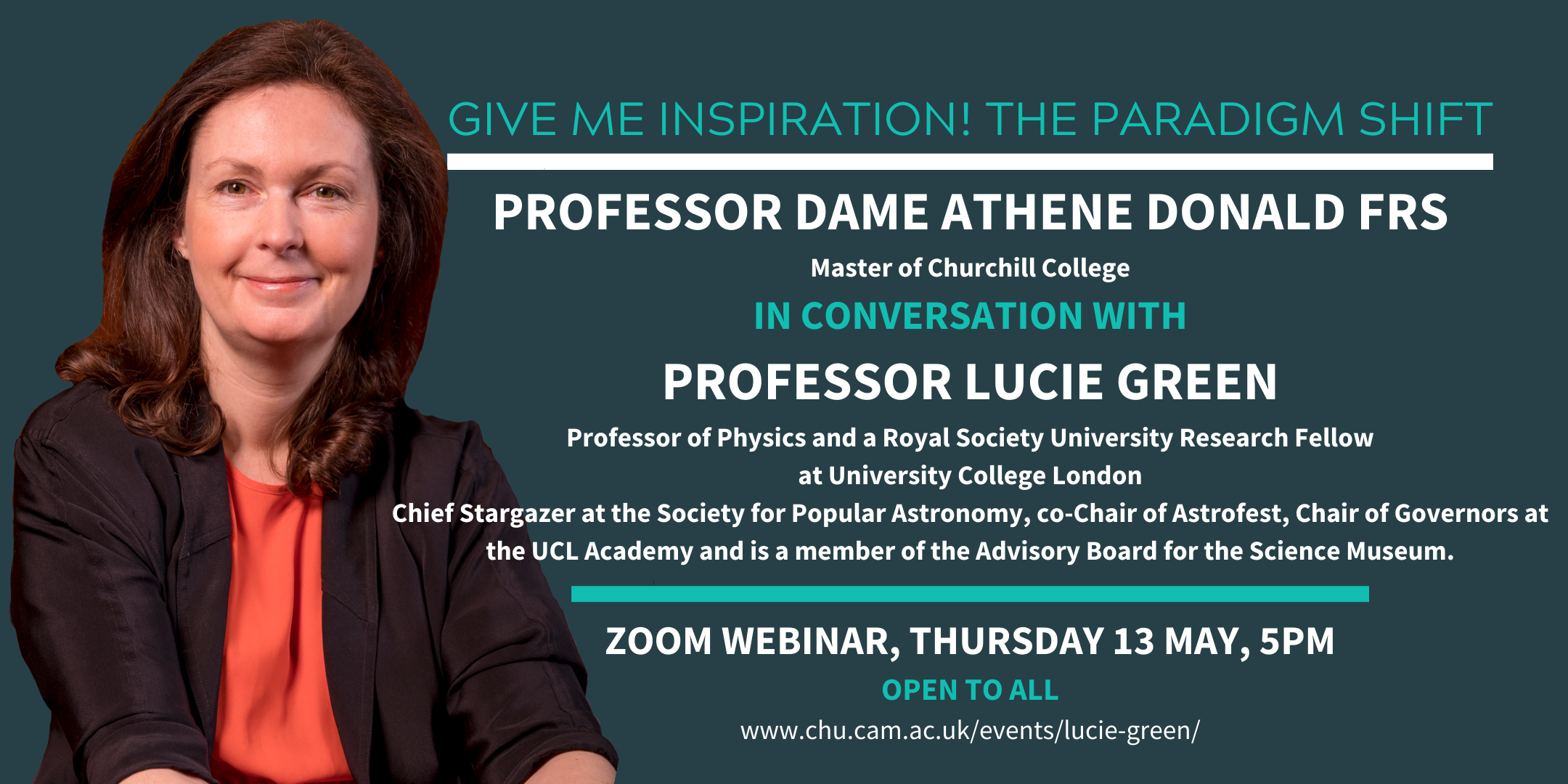
About this event
Professional women do amazing things and have cut through many glass ceilings.
What motivates them to get out of bed each morning and to deliver what is — or in many cases what isn’t expected of them?
For a student setting out, the life of senior professionals may seem very mysterious, particularly as many may end up taking on responsibilities and activities far removed from where an individual started.
The trajectory after university is rarely a straight line, with twists, setbacks, time out and/or opportunities (taken or declined) all to be combined with a personal life. This series of conversations aims to explore the individual paths of some eminent professionals who have made it to the top in their own particular ways. How have they found their own solutions to ‘life’, what tips do they wish they’d been given earlier on, and what might they view, retrospectively, with most pleasure or regret?
PROFESSOR LUCIE GREEN
Professor Lucie Green’s passion for understanding how the world works has been with her as long as she can remember. Her love for space science is more recent. After completing her degree in physics with astrophysics at the University of Sussex she moved to UCL to study for a PhD in solar physics. She had been inspired to learn more about our local star after an undergraduate observing trip to the Crimea where she was able to use a solar telescope. She hasn’t looked back since. After a few years away from research following her PhD working on outreach projects like the Faulkes Telescope Project she was awarded a Royal Society Dorothy Hodgkin Research Fellowship and came back to solar physics. She was then awarded a Fellowship from the Leverhulme Trust. Today, she is back at UCL where she now holds a Royal Society University Research Fellowship and works in the Solar Physics group.
At UCL they build instruments that are flown onboard international space missions and with that comes the responsibility to operate the instruments and ensure that they are getting the data that they need. Her first experience of operations was at NASA’s Goddard Space Flight Center where she would go and take control of the CDS instrument that’s onboard the SOHO spacecraft. Once the Japanese Hinode launched, their involvement meant that she then started to do operations for the EIS instrument. First of all this meant travelling to Japan but later the system was set up so that they could carry out all the tasks remotely. Mission control became her front room! The latest solar mission that her department is involved with is the European Space Agency Solar Orbiter mission that launched in 2020. In recent years she has been working on a European Space Agency mission concept for a space weather satellite, called Lagrange. This spacecraft is due to launch in the late 2020s and will provide them with advanced warning of space weather conditions at Earth.
For Lucie, carrying out research and discussing this research and the latest space science results go hand-in-hand. This has led her to organise local science festivals, hold open days, work with school students and adult learners and in TV and radio. In 2009 she was the recipient of the Royal Society’s Kohn Award for excellence in public engagement with science and in 2017 she was awarded the Institute of Physics’ Lise Meitner Medal and Prize for distinguished contributions to public outreach. She is the Chief Stargazer at the Society for Popular Astronomy, co-Chair of Astrofest, Chair of Governors at the UCL Academy and is a member of the Advisory Board for the Science Museum.